Erica Verrillo's Blog, page 95
March 26, 2014
Nook: Still Asleep at the Wheel
 Shortly after hearing that Russia had now become the world's third largest ebook market - after the US and China - I received this email from Nook.
Shortly after hearing that Russia had now become the world's third largest ebook market - after the US and China - I received this email from Nook.Dear Publisher,
You may notice some changes the next time you log into NOOK Press. We've been working hard to get NOOK Press ready for some new guests – starting today, publishers in the UK, France, Italy, Germany, Spain, the Netherlands, and Belgium will be able to publish with NOOK Press and reach Barnes & Noble's millions of book-loving customers. This means even more great indie content for customers and increased visibility for you and your NOOK Books in the months to come!
Of course, I am absolutely thrilled that Belgians will now be able to publish on Nook, but Nook books are still available only in the US and the UK.
What about reaching the second and third largest markets in the world?
Yesterday, I filed my 2013 tax return. I received $4712 from Amazon. Nook netted me a grand total of $75. The numbers speak for themselves.
________________________________
In Britain and especially abroad, ebooks are booming
By James Bridle, The Observer, Saturday 25 January 2014
Over the past year, more and more people have been reading ebooks. Hardly a surprise, but after years of hand-waving by enthusiasts and detractors, we're finally getting to the point where we can actually measure what's going on. We can see, for example, that in 2013, Russia overtook the UK to become the world's third largest ebook market after the US and China – largely thanks to a site called LitRes, which was founded in 2006 with a stated mission to fight book piracy. Before LitRes, the only ebook market in Russia was the black market. Today, LitRes is the only serious seller on the market. A similar effect can be seen occurring in Brazil and China and elsewhere.
Read the rest of this article here.
Published on March 26, 2014 11:27
March 23, 2014
Bad Reviews of Classic 20th-Century Novels
 I enjoy reading bad reviews of famous novels - almost as much as I enjoy getting them. It comforts me to know that if a book of mine is called "lugubrious," I will be keeping company with Aldous Huxley.
I enjoy reading bad reviews of famous novels - almost as much as I enjoy getting them. It comforts me to know that if a book of mine is called "lugubrious," I will be keeping company with Aldous Huxley. (Unlike Brave New World, not one of my books has been called "lugubrious," or even "nauseating," but this is probably due to an avoidance of polysyllabic adjectives on the part of contemporary reviewers.)
These books were panned primarily because they broke new ground. Innovative writing is rarely well received in the short run. However, in the long run, these books have stood the test of time, and are now considered classics.
Here are some truly harsh reviews of 20th-century classics assembled by Sean Hutchinson for Publisher's Weekly. If your book has the good fortune to be called "silly," know that you are right up there with Richard Wright.
______________________________
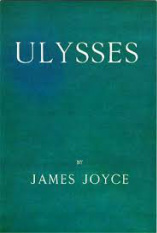 Really Harsh Early Reviews of 20 Classic 20th-Century Novels
Really Harsh Early Reviews of 20 Classic 20th-Century NovelsBy Sean Hutchinson
Ulysses – James Joyce
Joyce’s magnum opus redefined literature and was a major event upon its release in 1922. Some bought into its radical structure, but others didn’t—including fellow modernist Virginia Woolf. In her diary she called Ulysses “an illiterate, underbred book it seems to me: the book of a self-taught working man, and we all know how distressing they are, how egotistic, insistent, raw, striking, and ultimately nauseating ... never did any book so bore me.”
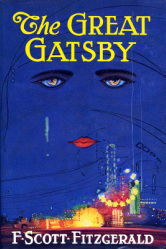 The Great Gatsby – F. Scott Fitzgerald
The Great Gatsby – F. Scott FitzgeraldCited by many as the Great American Novel, Fitzgerald’s inimitable The Great Gatsby remains a staple in classrooms and on bookshelves the world over. Critic and journalist H.L. Mencken, however, called it “no more than a glorified anecdote,” and that “it is certainly not to be put on the same shelf, with, say, This Side of Paradise [Fitzgerald’s debut novel].” In her review for the New York Evening World, critic Ruth Snyder said, “We are quite convinced after reading The Great Gatsby that Mr. Fitzgerald is not one of the great American writers of to-day.”
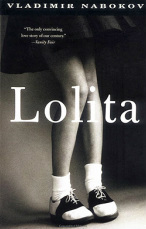 Lolita - Vladimir Nabokov
Lolita - Vladimir NabokovNabokov’s novel about a literature professor who becomes obsessed with a 12-year-old girl wasn’t without controversy when it was published in 1958. Orville Prescott’s review in the New York Times listed two reasons why Lolita “isn't worth any adult reader's attention.” “The first,” he said, “is that it is dull, dull, dull in a pretentious, florid and archly fatuous fashion. The second is that it is repulsive.” Later in the same review, he called Nabokov’s writing “highbrow pornography.
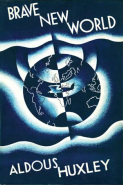 Brave New World – Aldous Huxley
Brave New World – Aldous HuxleyThe ritualistic and drug-filled dystopian world created by writer Aldous Huxley may have been too much for some when it was first published in 1931, but the New York Herald Tribune may have missed the point of the book altogether when their review called Brave New World “A lugubrious and heavy-handed piece of propaganda.”
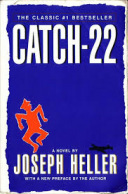 Catch-22 – Joseph Heller
Catch-22 – Joseph HellerHeller’s satirical novel about World War II is so popular that the phrase “Catch-22” has become a ubiquitous modern idiom meaning a type of no-win situation. Heller was in a no-win situation, according to critic Richard Stern, whose New York Times review called the book “an emotional hodgepodge.” He added, “No mood is sustained long enough to register for more than a chapter.”
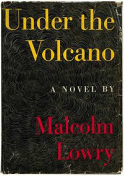 Under the Volcano — Malcolm Lowry
Under the Volcano — Malcolm LowryLowry’s novel—about an alcoholic British consul in Mexico during the Day of the Dead celebration on the eve of World War II—has both dazzled and frustrated readers since its debut in 1947. The New Yorker only reviewed it in its “Briefly Noted” section, saying, “for all [Lowry’s] earnestness he has succeeded only in writing a rather good imitation of an important novel.”
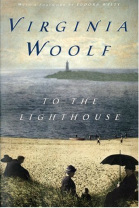 To the Lighthouse – Virginia Woolf
To the Lighthouse – Virginia WoolfThe New York Evening Post’s cleverly snide review of Woolf’s highly abstract Modernist masterpiece managed to praise her and shoot her down all in the same sentence: “Her work is poetry; it must be judged as poetry, and all the weaknesses of poetry are inherent in it.”
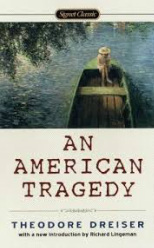 An American Tragedy – Theodore Dreiser
An American Tragedy – Theodore DreiserThis sprawling tale of love and deceit's influence has been made into an opera, a musical, a radio program, and more. When the novel was first published in 1925, the Boston Evening Telegraph called its main character, Clyde Griffiths, “one of the most despicable creations of humanity that ever emerged from a novelist’s brain,” and called Dreiser “a fearsome manipulator of the English language” with a style that “is offensively colloquial, commonplace and vulgar.
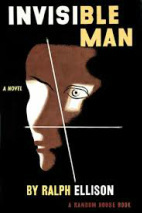 Invisible Man – Ralph Ellison
Invisible Man – Ralph EllisonInvisible Man won the National Book Award for Fiction in 1953, cementing its reputation as one of the most important books about race and identity ever written. In its 1952 review, however, the Atlantic Monthly thought it suffered from “occasional overwriting, stretches of fuzzy thinking, and a tendency to waver, confusingly, between realism and surrealism.”
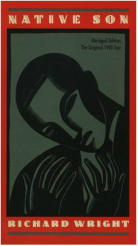 Native Son – Richard Wright
Native Son – Richard WrightRichard Wright’s Native Son is another classic American novel about the African American experience, but the New Statesman and The Nation found the book to be “unimpressive and silly, not even as much fun as a thriller."
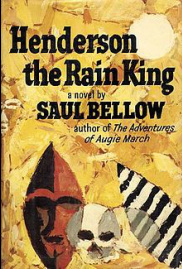 Henderson the Rain King – Saul Bellow
Henderson the Rain King – Saul BellowBellow’s uniquely comic and philosophical novel about an American millionaire who unwittingly becomes the king of an African tribe was the author's personal favorite. But it wasn’t a favorite for critic Reed Whittemore. In his review for the New Republic, Whittemore posed this question to himself: “The reviewer looks at the evidence and wonders if he should damn the author and praise the book, or praise the author and damn the book. And is it possible, somehow or other to praise or damn, both? He isn’t sure.”
Read the rest of these really harsh reviews here.
Published on March 23, 2014 13:57
March 18, 2014
3 New Agents Seeking Clients
 New agents are a boon to writers looking to break into the publishing world. They are hard-working, and eager to find and nurture new talent.
New agents are a boon to writers looking to break into the publishing world. They are hard-working, and eager to find and nurture new talent.Three of my books were picked up by Random House because of the enthusiastic endorsement of a new agent.
Check out these agents, and, as always, read the websites of their agencies to see if your work is a good fit for them.
___________________________
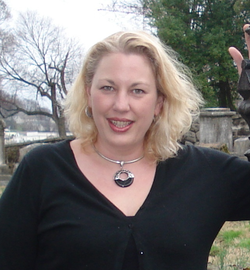 Cate Hart
Cate Hart About Cate: Cate Hart is a Junior Agent at Corvisiero Literary Agency, where she started as an intern working closely with Marisa Corvisiero and Saritza Hernandez. A Tennessee native, Cate earned her B.F.A. from the University of Tennessee. Before joining Corvisiero Literary Agency, Cate worked in financial management.
What she is seeking: Cate's primary interest is YA. She will consider any genre, but is looking especially for Fantasy and Magical Realism. For Middle Grade, she is looking for Fantasy, Adventure and Mystery with a humorous or heart-warming voice and a unique concept. For Adult, she is only accepting Historical Romance. Cate will also consider select LGBTQ and Erotica. For Non-Fiction, Cate will consider select histories and biographies. She is looking for secret histories and little known facts and events. She enjoys reading about the everyday heroes of the American and French Revolutions, something more beyond the tactics of war.
How to submit: Please send a query letter addressed to Cate with “Query” and your title in the subject line. Attach a 1-2 page synopsis and the first five pages of your manuscript as a doc file. Cate will respond to every query. You can check her website catehart.com for “current through” dates as well as updated wishlists.
______________________________
 Rena Rossner
Rena RossnerAbout Rena: Rena handles foreign rights for the Deborah Harris Agency, a literary agency based in Jerusalem. She is a graduate of Johns Hopkins University’s Writing Seminars Program, where she double-majored in poetry and non-fiction writing. She studied at Trinity College, Dublin and holds an MA in History from McGill University in Montreal, Canada. She worked at bookstores in four countries, has written extensively for The Jerusalem Report and The Jerusalem Post, and worked in PR, grant-writing, and website development at The Jerusalem Foundation. She is a writer of both fiction and poetry.
She is seeking: "I am most interested in representing Fantasy and Science Fiction in all its permutations - Adult, Middle Grade, Young Adult etc. I also look for Middle Grade and Young Adult contemporary stories and I'd be open to MG/YA mysteries and thrillers as well. I represent quite a few picture books and I'm always looking for those. In terms of adult books, I look for Literary Fiction, Historical Fiction, multicultural books, and I'd also consider adult mysteries, thrillers and psychological suspense, but not cozy mysteries. I specifically look for literary work (in any genre,) and books with elements of magical realism and the fantastic. You will steal my heart for sure if it's set in the Middle East, in Israel or if it has Jewish or Israeli themes and characters, but I'm open to all themes, settings and characters. You've got to have a really good reason to send me nonfiction, or cookbooks, but if you have a reason that seems to fit with who I am and what I'm looking for, I'll take a look."
How to submit: Please include a synopsis of your book, a short biographical note and the first two chapters of the work— or an equivalent of up to fifty pages. Email: rena@thedeborahharrisagency.com
_____________________
 Holly Lorincz of MacGregor Literary
Holly Lorincz of MacGregor LiteraryAbout Holly: Holly has a degree in Journalism as well as a MAT focused in writing and literature. She was the editor of the literary magazine Perceptions, and then became a high school and college instructor. During that fifteen year run, she was named Teacher of the Year in Oregon, won two national awards from the National Federation of Schools, coached her high school speech team to two State Championships and nine individual Champions, began an editing service, and published various short works.
She is seeking: "I am currently only accepting general market submissions in these areas: historical romance, literary or classic westerns, political or conspiracy thrillers, women's fiction, or literary fiction."
How to submit: Email queries to holly [at] macgregorliterary.com. Please include the genre in the subject line.
Published on March 18, 2014 10:14
March 16, 2014
How to Buy a Top Spot on the New York Times Bestseller List
 I have long suspected that the rank of 'bestseller' could be purchased. Now, there is proof.
I have long suspected that the rank of 'bestseller' could be purchased. Now, there is proof.Does this mean you can buy a bestseller slot for your upcoming book? Not unless you have a couple hundred thousand dollars to spare, and know 6,000 people.
_______________________________
How to Buy a Top Spot on the New York Times Bestseller List
By Dennis Abrams, Publishing Perspectives, March 10, 2014
Carolyn Kellogg reports in the Los Angeles Times that while every author wants to get a book on the bestseller list, “those who can pay for the services of ResultSource Inc just might get one.”
The company which describes itself as “a boutique marketing firm that works with today’s thought leaders to build bestsellers” apparently has done so. In 2013, Kellogg reports, the Wall Street Journal talked with the authors of two books who paid thousands of dollars to ResultSource and soon ended up on the Journal’s bestseller list. “Precisely how [ResultSource] goes about [its business] is unclear, Jeffrey Trachtenberg reported at the time.
Now, Warren Cole Smith reports at www.worldmag.com that “Seattle’s Mars Hill Church paid [ResultSource] at least $210,000 in 2011 and 2012 to ensure thatReal Marriage, a book written by Mark Driscoll, the church’s founding pastor, and his wife Grace, made the New York Times best-seller list.”
Smith writes that a document obtained by WORLD shows that ResultSource Inc. (RSI) entered into an agreement with Mars Hill “to conduct a bestseller campaign for your book, Real Marriage, on the week of January 2, 2012. The bestseller campaign is intended to place Real Marriage (Thomas Nelson) on The New York Times bestseller list for the Advice How-To list.”
ResultSource also promised Mars Hill that they would be able to help place Real Marriage on the Wall Street Journal Business, USA Today Money, BN.com (Barnes& Noble) and Amazon.com bestseller lists.
Find out how they did it HERE.
Published on March 16, 2014 08:15
March 13, 2014
14th Free “Dear Lucky Agent” Contest: Contemporary Middle Grade Fiction
 Hey, it's Spring! That means contest time.
Hey, it's Spring! That means contest time.This one is FREE. (I am a strong believer in free contests.)
What do you get if you win?
Essentially, you get a chance to be represented by the agent who is reading the entries. So, make sure you check out Christa at McIntosh and Otis (scroll down). You never know - she could become your agent!
______________________________________
Writer's Digest, March 4, 2014 | Chuck Sambuchino
Welcome to the 14th (free!) “Dear Lucky Agent” Contest on the GLA blog. This is a recurring online contest with agent judges and super-cool prizes. Here’s the deal: With every contest, the details are essentially the same, but the niche itself changes—meaning each contest is focused around a specific category or two. So if you’re writing contemporary middle grade fiction, this 14th contest is for you! (The contest is live through EOD, March 18, 2014.)
WHY YOU SHOULD GET EXCITED
After a previous “Dear Lucky Agent” contest, the agent judge, Tamar Rydzinski (The Laura Dail Literary Agency), signed one of the three contest winners. After Tamar signed the writer, she went on to sell two of that writer’s books! How cool! That’s why these contests are not to missed if you have an eligible submission.
HOW TO SUBMIT
E-mail entries to dearluckyagent14@gmail.com. Please paste everything. No attachments.
WHAT TO SUBMIT
The first 150-200 words of your unpublished, book-length work of contemporary middle grade fiction. You must include a contact e-mail address with your entry and use your real name. Also, submit the title of the work and a logline (one-sentence description of the work) with each entry.
Please note: To be eligible to submit, you must mention this contest twice through any any social-media. Please provide a social media link or Twitter handle or screenshot or blog post URL, etc., with your offical e-mailed entry so the judge and I can verify eligibility. Some previous entrants could not be considered because they skipped this step! Simply spread the word twice through any means and give us a way to verify you did; a tinyURL for this link/contest for you to easily use is http://tinyurl.com/kva3w9j. An easy way to notify me of your sharing is to include my Twitter handle @chucksambuchino somewhere in your mention(s) if using Twitter. And if you are going to solely use Twitter as your 2 times, please wait 1 day between mentions to spread out the notices, rather than simply tweeting twice back to back. Thanks.
WHAT IS ELIGIBLE?
Contemporary middle grade fiction. This means any middle grade set in our present world and time — mainstream, thriller, romance, mystery, adventure, humor, etc. What the agent judge will NOT consider as part of this contest is stories set outside our present world — sci-fi, fantasy, historical, steampunk.
CONTEST DETAILS
This contest will be live for approximately 14 days—from March 4, 2014 through the end of March 18, 2014, PST. Winners notified by e-mail within three weeks of end of contest. Winners announced on the blog thereafter.
To enter, submit the first 150-200 words of your book. Shorter or longer entries will not be considered. Keep it within word count range please.
You can submit as many times as you wish. You can submit even if you submitted to other contests in the past, but please note that past winners cannot win again. All that said, you are urged to only submit your best work.
The contest is open to everyone of all ages, save those employees, officers and directors of GLA’s publisher, F+W Media, Inc.
By e-mailing your entry, you are submitting an entry for consideration in this contest and thereby agreeing to the terms written here as well as any terms possibly added by me in the “Comments” section of this blog post. (If you have questions or concerns, write me personally at chuck.sambuchino (at) fwmedia.com. The Gmail account above is for submissions, not questions.)
PRIZES!!!
Top 3 winners all get: 1) A critique of the first 10 double-spaced pages of your work, by your agent judge. 2) A free one-year subscription to WritersMarket.com ($50 value)!
JUDGE
Christa Heschke is an agent with McIntosh & Otis. (Find her on Twitter, and see her blog, Neverending Stories.) Christa graduated from Binghamton University with a major in English and a minor in Anthropology. She started in publishing as an intern at both Writers House and Sterling Lord Literistic, where she fell in love with the agency side of publishing. Christa has been at McIntosh and Otis, Inc. in the Children’s Literature Department since 2009 where she is actively looking for picture books, middle grade, young adult and new adult projects and is currently building her list.
Published on March 13, 2014 09:03
March 12, 2014
4 Major Science Fiction and Fantasy Publishers Accepting Unagented Manuscripts
 Speculative fiction publishers have a tradition of accepting manuscripts directly from authors.
Speculative fiction publishers have a tradition of accepting manuscripts directly from authors.This is a genre that has a market of readers who think in terms of possibilities, and who don't, as a rule, like to follow the mainstream.
These readers also have their own networks, which means a science fiction novel can achieve fame strictly through word-of-mouth ( e.g. Wool). Publishers in this genre realize that mavericks have a place in the sci-fi world, and are thus willing to work directly with writers.
Because many sci-fi houses publish fantasy as well, fantasy writers also get a break.
As always, go to the publisher's website, and read everything on it before you submit your work.
__________________________________
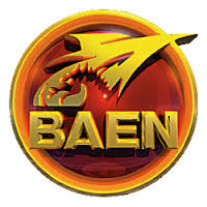 Baen Books
Baen Books Baen Books was founded in 1983 by science fiction editor and publisher Jim Baen (now deceased). Baen was one of the first publishers to use the Internet as a means of "spreading the word" about a book or author.
In addition to publishing emerging authors, Baen republishes older science fiction in collections and omnibus editions, such as the works of the 1960s authors Christopher Anvil and others.
What they are looking for: Science fiction and fantasy. Powerful plots with solid scientific and philosophical underpinnings are essential for science fiction submissions. For fantasy, any magical system must be both rigorously coherent and integral to the plot, and overall the work must at least strive for originality. Manuscripts should be at least 100,000 words, but if your novel is really wonderful send it along regardless of length.
Reporting time: usually within 9 to 12 Months.
How to submit: Complete manuscript accompanied by a synopsis. No simultaneous submissions.
Electronic Submissions: Send your manuscript by using the submission form at: http://ftp.baen.com/Slush/submit.aspx
Attach the manuscript as a Rich Text Format (.rtf) file. Any other format will not be considered.
Send the manuscript as a single file (do not break it into separate chapter files). The form only accepts a single file so any synopsis and contact info needs to be in the file with your manuscript.
Your submission must include your name, email address, postal mailing address, and telephone number on both your cover letter and the first page of the manuscript. If you have an alternate permanent email address, please include it, in case your primary account goes out of service. Include a plot outline if possible.
You may include your ideal cover treatment, including cover copy, a teaser page, and whatever else you would like.
Hardcopy Submissions: (for those who cannot submit electronically)
Standard manuscript format only: double-spaced, one side of the page only, 1 1/2" margins on all four sides of the page. We will consider photocopies if they are dark and clear.
Font must be seriphed or at least semi-seriphed, 12-point or greater.
Title, author (last name only is okay), and page number at the top of each page are mandatory. Include your name, mailing address, and telephone number on the first page.
All submissions should be accompanied by a stamped return envelope. Submissions from outside the U.S. should be accompanied by sufficient International Reply Coupons.
Send manuscripts to:
Baen Books
P.O. Box 1188
Wake Forest, NC 27588
_______________________________
 DAW
DAWDAW is part of the Penguin Group.
From the website: Founded in 1971 by veteran paperback editor Donald A. Wollheim, along with his wife, Elsie B. Wollheim, DAW Books was the first publishing company ever devoted exclusively to science fiction and fantasy. Now more than 30 years and more than a thousand titles later, DAW has a well-deserved reputation for discovering and publishing the hottest talents in the industry. Many stars of the science fiction and fantasy field made their debuts in the pages of a DAW book, including Tad Williams, C. J. Cherryh, Mercedes Lackey, Melanie Rawn, C.S. Friedman, Jennifer Roberson, and Tanith Lee. Despite its high profile, DAW is still a small private company, owned exclusively by its publishers, Elizabeth R. Wollheim and Sheila E. Gilbert. Betsy and Sheila are strongly committed to discovering and nurturing new talent, and to keeping a personal "family" spirit at DAW—something they feel is all too rare in today's world of international conglomerate publishing.
What they are looking for: Science fiction and fantasy novels. The average length of the novels is almost never less than 80,000 words. They do not want short stories, short story collections, novellas, poetry, or novels in other genres.
How to submit : DAW does not accept electronic submissions. Send the complete manuscript with a cover letter. Manuscripts must be letter-quality computer-generated. Clear photocopies are acceptable. The manuscript should be on 8 1/2" x 11" paper or a close equivalent, double-spaced, with at least 1" wide margins all around. Please use only one side of the page, number your pages consecutively, and put the title of your novel at the top of each page if possible. Manuscripts should always be unbound.
Type your name, address and phone number in the upper right hand corner of the first page of your manuscript. Right under this, please put the length of your manuscript in number of words.
Enclose a self-addressed, stamped envelope with your submission for our correspondence. Manuscripts will not be returned,
Send manuscripts to:
Peter Stampfel
Submission Editor
DAW Books
375 Hudson St
New York, NY 10014
_____________________________
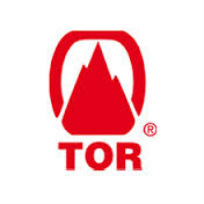 TOR
TORTOR was founded by publisher Tom Doherty in 1980. It was sold to St. Martin's Press in 1986, making it part of the Holtzbrinck group. Tor has published more award-winning and -nominated science fiction books
than any other publisher.
What they are looking for: Science fiction, as well as other genre fiction. Imprints include Starscape: science fiction and fantasy for middle grade readers ages 10 and up (grades 5 and up), published in hardcover and paperback, and Tor Teen, science fiction and fantasy for young adult readers ages 13 and up (grades 8 and up), published in hardcover and paperback. All titles are age- and theme-appropriate. Some editions include reader’s guides and other supplemental materials.
How to submit: TOR has an open submissions policy. Every proposal is reviewed by at least one member of the editorial staff.
Please note that these guidelines are intended for writers who do not have agents.
Your submissions packet should include:
The first three chapters of your book, prepared in standard manuscript format on white paper. (If your chapters are really short or really long, or you don't use chapter breaks, you may send the first 40-60 pages of your book, provided you stay under 10,000 words.) The submitted text must be made up of consecutive pages and should end at the end of a paragraph, not in mid-sentence. Standard manuscript format means margins of at least 1 inch all the way around; indented paragraphs; double-spaced text; and Courier or Times Roman in 10 or 12 pitch. Please use one side of the page only and do not justify the text. Do not bind the manuscript in any way. Make sure the header of the ms. includes either your name or the title of the book and the page number (on every page).
A synopsis of the entire book. The synopsis should include all important plot elements, especially the end of the story, as well as aspects of character development for your main characters. The synopsis should run between three and ten pages in standard manuscript format.
A dated cover letter that includes your name and contact information and the title of the submitted work. Briefly tell us what genre or subgenre the submission falls into and mention any qualifications you have that pertain to the work. Please list any previous publications in paying markets.
A self-addressed, stamped, business-size envelope for our reply letter. Unfortunately, it's no longer possible for us to return submissions due to a change in postal service policy that requires packages weighing more than a pound be mailed at a post office. Since we use a company mailroom rather than a post office, when we try to return submissions, they are sent back to us by the postal service or disappear in transit. We recycle your proposals. (That's not a euphemism for being tossed in a wastebasket--we recycle all white paper.) If you live outside the United States, please go to http://www.usps.com/onlinepostage to see internet postage options. If you do not include an SASE, you will not receive a reply at all.
Please send only one proposal in each submissions packet. If you have written a series, send a proposal for the first book only. If we like what we see, we'll ask for the rest.
Many people include postcards for us to return when the proposal reaches us. Unfortunately, we don't open submissions until we're ready to read them, so you'll likely get the "I got it" postcard the same day you receive our response to your project.
If you want to be sure that your manuscript was delivered to our offices, please ask for a return receipt or a signature confirmation when you post it.
Here are some tips to help the whole process work smoothly:
Don't send a query letter. It's practically impossible to judge a project from a query. We'd rather see your proposal.Don't send submissions or inquiries by email or fax. We do not respond to emailed or faxed submissions, queries, or inquiries about the status of submissions.Don't send disks. We want to read words in black type on white paper. And it's not that we don't trust you, but your system might have viruses you don't know about.Don't send us the only copy of anything. Things get lost in transit.Don't send interior or cover art or an author photo. There's time for that later, if we like your project.Don't send jewelry, food, toys, 3-dimensional representations of anything, or anything that might be construed as a bribe.Send submissions to:
Tom Doherty Associates, LLC
175 Fifth Avenue
New York, NY 10010
______________________________
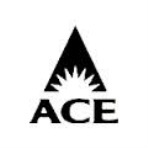 Ace
AceACE Books is the oldest continuously operating science fiction publisher in the United States. It is now part of Penguin Group. It issued some of the most outstanding science fiction writers of the 1950s and 1960s, including Samuel R. Delany, Philip K. Dick, Ursula K. Le Guin, and Robert Silverberg. Ace was known for marketing innovations such as the Ace Doubles, which contained two short novels bound back to back, and for the critically acclaimed Ace Specials edited by Terry Carr.
What they are looking for: Science fiction and fantasy. (The publisher recommends that you look at their list to see what they publish.) Ace and Roc do not accept submissions of short stories, non-fiction, children's books, poetry, or artwork.
How to submi t: The usual length for a manuscript is between 80,000 and 125,000 words.
All work should be submitted by emailing a query letter with the first ten pages of your book pasted in the body of the email. Do not attach any documents. Text should be formatted in the industry standard of Times New Roman 12 point font.
Our email address is sff@us.penguingroup.com. Please note that we no longer accept paper submissions.
No simultaneous submissions.
Reporting time: 5 months for a reply to an e-mail query.
Published on March 12, 2014 13:54
March 10, 2014
25% of Top 100 Kindle Books on Amazon from Indie Publishers
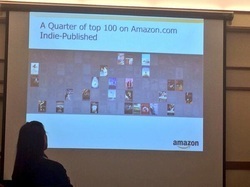 Somehow, it does not surprise me that a quarter of the top 100 Kindle books are self-published. These books consistently underprice the competition from traditional publishers, and are often available for free through Amazon's KDP Select program. Readers are more then willing to take a chance on a book that costs nothing.
Somehow, it does not surprise me that a quarter of the top 100 Kindle books are self-published. These books consistently underprice the competition from traditional publishers, and are often available for free through Amazon's KDP Select program. Readers are more then willing to take a chance on a book that costs nothing. And, of course, now that Amazon owns Goodreads, a whole new world of reviews and reader endorsements has opened up.
____________________
Source: The Guardian, Dec 4, 2013
As many as a quarter of the top 100 Kindle books on Amazon.com are from indie publishers, according to data revealed at a trade presentation by the retailer.
A chart detailing the 25 top-selling indie titles in 2012 was passed on by an audience member via Twitter. Though the term indie is broad, covering everything from self-published authors to publishing houses that fall outside the big six, the news has been interpreted as a victory for the go-it-alone author. However in the US the term has come to mean self-published. A spokeswoman for Amazon.com said: "This figure is referring to Kindle books on Amazon.com in 2012, with 'indie' meaning books self-published via Kindle Direct Publishing (KDP). So a quarter of the top 100 bestselling Kindle books on Amazon.com in 2012 were self-published via KDP."
Writer.ly , an online marketplace that connects authors with freelance editors, book designers and marketeers, tweeted a picture of the chart on Wednesday. It displayed the top 100 books, with about a quarter of the covers highlighted, under the title "A Quarter of top 100 on Amazon.com Indie-Published".
The figure refers to Amazon's US book market but is a strong indicator of what's ahead for the UK. "If the UK isn't quite there yet then it's just a time lag – we are seeing that more and more of the top books around the world are published by authors themselves," said Orna Ross, director of the UK Alliance of Independent Authors, which represents self-published writers.
"We are in the middle of a major change. I wouldn't be at all surprised if we reached a situation where the majority of the top books are author-published. I don't see what would stop that," Ross said.
Read more HERE.
Published on March 10, 2014 09:14
March 9, 2014
6 Publishers Accepting Unsolicited Manuscripts from Writers - No Agent Needed
These publishers accept manuscripts directly from writers. As is the case with most publishers that don't require an agent, they have a narrow focus. But, if your work falls into the categories they publish, you will have a good chance of having your proposal read. As always, go to the website, look at their other publications to see if yours will be a good fit, and follow all of their submission guidelines carefully.
__________________________
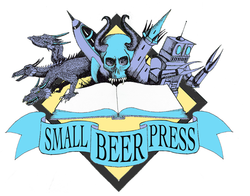 Small Beer Press
Small Beer Press
Small Beer Press was founded in 2000 and is run by Gavin J. Grant and Kelly Link. It publishes books as Small Beer Press, Big Mouth House, and Peapod Classics, and occasionally chapbooks and a zine - on recycled paper.
They also have an ebooksite for indie presses: Weightless Books.
Generally, they publish 6-10 books per year. They pay a small advance and standard royalties. Their ebook royalty rate is 40% of net receipts. While their catalog is not extensive, they do have two short story collections by Ursula LeGuin.
What they are looking for: Fiction (leaning toward the speculative), both short story collections and novels. No poetry.
How to submit : Print format by post only.
Please send a query with the first 10-20 pages of the book (not the full manuscript) in standard manuscript format, and an SASE (with a Forever Stamp or an international reply coupon) by mail to:
Small Beer Press
150 Pleasant St., #306
Easthampton, MA 01027
Phone: 413.203.1636
Email: info at smallbeerpress.com
______________________________
 Allworth Press
Allworth Press
Allworth Press publishes business and self-help information for the general public and creative professionals. They share distribution with Skyhorse Publishing, using W. W. Norton in the United States. Allworth Press titles are now distributed in Canada, the United Kingdom, Europe, Australia, Southern Africa, the Philippines, Korea, Hong Kong, and Singapore. Books from Allworth Press have been translated into many languages, including Chinese, Spanish, Portuguese, German, and Japanese. Allworth Press currently has 300 titles in print.
What they are looking for: Graphic Design, Business, Performing Arts, Interior Design, Art, Theater, Web Design, Book Arts, Photography, Crafts.
How to submit : Prospective authors should submit a book proposal that includes a query letter, synopsis (1-2 pages), annotated chapter outline, market analysis, sample chapter (or two), bio, and SASE.
Send all submissions to: allworthsubmissions @skyhorsepublishing.com. If they are interested, they will get back to you within 4-6 weeks
_____________________________
 City Lights
City Lights
City Lights Publishers is famous for launching several poets, including Lawrence Ferlinghetti and Allen Ginsberg, but this press also specializes in literary fiction and nonfiction. City Lights publishes 12 books a year.
From the website: For over fifty years, City Lights has been a champion of progressive thinking, fighting against the forces of conservatism and censorship. We are committed to publishing works of social responsibility, and to maintaining a tradition of bringing renegade literature from other parts of the world into English. In our function of discovery, we will continue to publish cutting-edge contemporary literature and brilliant new non-fiction.
What they are looking for: Fiction, essays, memoirs, translations, poetry, and books on social and political issues. They do not publish New Age, self-help, children’s literature, how-to guides, or genre works such as romance, westerns, or science fiction.
How to submit: City Lights does not accept unsolicited manuscripts, but they do accept proposals. Prospective authors should submit the following:
A one to two-page letter that describes your book and includes your resumé, with a list of any prior publications and information about your relevant writing and professional experience. A sample (10–20 pages maximum) of your work. An additional outline and table of contents for a nonfiction work.To receive a response, you must enclose a self-addressed stamped envelope (SASE). You will receive a reply from our staff within six months letting you know if they want to see a complete manuscript. Telephoning or e-mailing will not speed up the review process.
City Lights takes no responsibility for the loss or damage of submitted materials. Please do not submit irreplaceable materials.
They do not accept proposals by e-mail or at the front desk at City Lights Bookstore.
Please mail proposals to:
Editorial Department
City Lights Publishers
261 Columbus Avenue
San Francisco CA 94133
_______________________
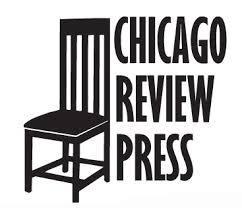 Chicago Review Press
Chicago Review Press
Academy Chicago Publishers is one of the oldest publishing houses in Chicago. They publish both fiction and nonfiction and have more than two hundred published titles on their list. Academy Chicago publishes about 60 new titles yearly under five imprints: Chicago Review Press, Lawrence Hill Books, Ball Publishing, Zephyr Press, and Academy Chicago.
What they are looking for : Chicago Review Press publishes general nonfiction on a wide range of subjects including history, popular science, music, film, biography, autobiography, DIY, craft, and travel, as well as an award-winning line of children's activity books and young adult biographies. Lawrence Hill Books publishes nonfiction on topics of African American interest, progressive politics, Middle Eastern studies, and feminism. Ball Publishing specializes in gardening books, and Zephyr Press publishes professional development titles for teachers. Academy Chicago publishes memoirs, mysteries, and other exciting, new, and well-crafted fiction and nonfiction.
How to submit: For non-fiction send:
A brief synopsis of your proposed book in 1–2 paragraphsThe estimated word count of the final manuscriptThe estimated completion dateAuthor biography or resume specifying credentials and publication credits, where appropriateApproximate sales of previous books published, if anyA complete table of contents and/or a complete outline of the proposed chapters1–2 sample chaptersFor children's activity books, include a few sample activities and list the others
Any information regarding photographs or artwork for the bookA description of the target audience and any information about the marketA list of competing and comparable titles and how your book differs—be sure to tell us what makes your book uniquePlease e-mail your proposal to frontdesk@chicagoreviewpress.com
Their turnaround time on reviewing proposals is about 4–6 weeks.
_________________________________
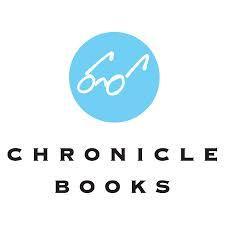 Chronicle Books
Chronicle Books
Chronicle Books "We're always looking for the new and unusual." Chronicle Books publishes 90 titles per year.
What they are looking for: Art and design, art, craft, graphic design, interior design, photography, food and drink, kids and teens, literature, lifestyle, pop culture.
How to submit: They review all proposals. However, they do not personally respond to unsolicited proposals unless they are interested in pursuing the project. Chronicle accepts submissions by mail or e-mail. Please allow three months for the editors to review a proposal.
What to Include in Your Proposal:
Include a one-page cover letter giving a brief description of the project, why you think Chronicle should publish it, what's included in the package, and your contact information. If your proposal is a simultaneous submission, please indicate this in your cover letter. Include an outline, introduction, sample illustrations or photographs, sample captions, sample recipes (if cookbook) or projects (if craft book), and text/sample chapters. When submitting artwork, either as a part of a project or as samples for review, please do not send original art, as it will not be returned. Anything from photocopies to tear sheets will do. Include a market analysis of the potential readership for the book. Who is the reader? What trends does the title speak to? Include a list of similar titles including the publisher, date of publication, and a brief explanation of how your book differs what's currently available. Include author/illustrator/photographer biography that includes publishing credits and credentials in the field. If you would like confirmation of receipt, please include a self-addressed stamped postcard for the editor to put in the mail upon receiving your proposal.Please send submissions to:
Chronicle Books; Submissions Editor
680 Second Street
San Francisco, California 94107
____________________________________
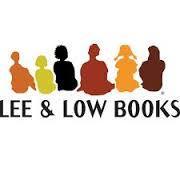 Lee & Low Books
Lee & Low Books
Lee & Low Books is a children’s and young adult book publisher focusing on diversity. As of 2012, Lee & Low Books has published more than 650 titles in hardcover, paperback, lift-the-flap, and board book formats. Many titles have also been adapted for Spanish editions. They publish 12-14 titles per year.
What they are looking for: Lee & Low focuses on titles for readers age 5-12. Tu Publishing is an independent imprint publishing diverse fantasy, science fiction, and mystery for middle grade and young adult readers. Children's Book Press (CBP) publishes bilingual books.
How to submit: Manuscripts should be typed doubled-spaced and accompanied by a cover letter that includes a brief biography of the author, including publishing history. The letter should also state if the manuscript is a simultaneous or an exclusive submission. They will respond to a submission only if they are interested in the manuscript. If you do not hear from them within six months, you may assume that your work does not fit their needs. Only submissions sent through regular post will be considered.
Picture book manuscripts should be no longer than 1500 words for fiction and 3000 words for nonfiction. Please send the complete manuscript. Do not include illustrations unless you are a professional illustrator. Do not send irreplaceable materials. For middle grade manuscripts of more than 10,000 words, please send a query letter with story synopsis and chapter outline. Do not send the complete manuscript.PLEASE SEND ALL SUBMISSIONS TO:
Submissions Editor
LEE & LOW BOOKS
95 Madison Avenue
New York, NY 10016
__________________________
 Small Beer Press
Small Beer PressSmall Beer Press was founded in 2000 and is run by Gavin J. Grant and Kelly Link. It publishes books as Small Beer Press, Big Mouth House, and Peapod Classics, and occasionally chapbooks and a zine - on recycled paper.
They also have an ebooksite for indie presses: Weightless Books.
Generally, they publish 6-10 books per year. They pay a small advance and standard royalties. Their ebook royalty rate is 40% of net receipts. While their catalog is not extensive, they do have two short story collections by Ursula LeGuin.
What they are looking for: Fiction (leaning toward the speculative), both short story collections and novels. No poetry.
How to submit : Print format by post only.
Please send a query with the first 10-20 pages of the book (not the full manuscript) in standard manuscript format, and an SASE (with a Forever Stamp or an international reply coupon) by mail to:
Small Beer Press
150 Pleasant St., #306
Easthampton, MA 01027
Phone: 413.203.1636
Email: info at smallbeerpress.com
______________________________
 Allworth Press
Allworth PressAllworth Press publishes business and self-help information for the general public and creative professionals. They share distribution with Skyhorse Publishing, using W. W. Norton in the United States. Allworth Press titles are now distributed in Canada, the United Kingdom, Europe, Australia, Southern Africa, the Philippines, Korea, Hong Kong, and Singapore. Books from Allworth Press have been translated into many languages, including Chinese, Spanish, Portuguese, German, and Japanese. Allworth Press currently has 300 titles in print.
What they are looking for: Graphic Design, Business, Performing Arts, Interior Design, Art, Theater, Web Design, Book Arts, Photography, Crafts.
How to submit : Prospective authors should submit a book proposal that includes a query letter, synopsis (1-2 pages), annotated chapter outline, market analysis, sample chapter (or two), bio, and SASE.
Send all submissions to: allworthsubmissions @skyhorsepublishing.com. If they are interested, they will get back to you within 4-6 weeks
_____________________________
 City Lights
City LightsCity Lights Publishers is famous for launching several poets, including Lawrence Ferlinghetti and Allen Ginsberg, but this press also specializes in literary fiction and nonfiction. City Lights publishes 12 books a year.
From the website: For over fifty years, City Lights has been a champion of progressive thinking, fighting against the forces of conservatism and censorship. We are committed to publishing works of social responsibility, and to maintaining a tradition of bringing renegade literature from other parts of the world into English. In our function of discovery, we will continue to publish cutting-edge contemporary literature and brilliant new non-fiction.
What they are looking for: Fiction, essays, memoirs, translations, poetry, and books on social and political issues. They do not publish New Age, self-help, children’s literature, how-to guides, or genre works such as romance, westerns, or science fiction.
How to submit: City Lights does not accept unsolicited manuscripts, but they do accept proposals. Prospective authors should submit the following:
A one to two-page letter that describes your book and includes your resumé, with a list of any prior publications and information about your relevant writing and professional experience. A sample (10–20 pages maximum) of your work. An additional outline and table of contents for a nonfiction work.To receive a response, you must enclose a self-addressed stamped envelope (SASE). You will receive a reply from our staff within six months letting you know if they want to see a complete manuscript. Telephoning or e-mailing will not speed up the review process.
City Lights takes no responsibility for the loss or damage of submitted materials. Please do not submit irreplaceable materials.
They do not accept proposals by e-mail or at the front desk at City Lights Bookstore.
Please mail proposals to:
Editorial Department
City Lights Publishers
261 Columbus Avenue
San Francisco CA 94133
_______________________
 Chicago Review Press
Chicago Review Press Academy Chicago Publishers is one of the oldest publishing houses in Chicago. They publish both fiction and nonfiction and have more than two hundred published titles on their list. Academy Chicago publishes about 60 new titles yearly under five imprints: Chicago Review Press, Lawrence Hill Books, Ball Publishing, Zephyr Press, and Academy Chicago.
What they are looking for : Chicago Review Press publishes general nonfiction on a wide range of subjects including history, popular science, music, film, biography, autobiography, DIY, craft, and travel, as well as an award-winning line of children's activity books and young adult biographies. Lawrence Hill Books publishes nonfiction on topics of African American interest, progressive politics, Middle Eastern studies, and feminism. Ball Publishing specializes in gardening books, and Zephyr Press publishes professional development titles for teachers. Academy Chicago publishes memoirs, mysteries, and other exciting, new, and well-crafted fiction and nonfiction.
How to submit: For non-fiction send:
A brief synopsis of your proposed book in 1–2 paragraphsThe estimated word count of the final manuscriptThe estimated completion dateAuthor biography or resume specifying credentials and publication credits, where appropriateApproximate sales of previous books published, if anyA complete table of contents and/or a complete outline of the proposed chapters1–2 sample chaptersFor children's activity books, include a few sample activities and list the others
Any information regarding photographs or artwork for the bookA description of the target audience and any information about the marketA list of competing and comparable titles and how your book differs—be sure to tell us what makes your book uniquePlease e-mail your proposal to frontdesk@chicagoreviewpress.com
Their turnaround time on reviewing proposals is about 4–6 weeks.
_________________________________
 Chronicle Books
Chronicle BooksChronicle Books "We're always looking for the new and unusual." Chronicle Books publishes 90 titles per year.
What they are looking for: Art and design, art, craft, graphic design, interior design, photography, food and drink, kids and teens, literature, lifestyle, pop culture.
How to submit: They review all proposals. However, they do not personally respond to unsolicited proposals unless they are interested in pursuing the project. Chronicle accepts submissions by mail or e-mail. Please allow three months for the editors to review a proposal.
What to Include in Your Proposal:
Include a one-page cover letter giving a brief description of the project, why you think Chronicle should publish it, what's included in the package, and your contact information. If your proposal is a simultaneous submission, please indicate this in your cover letter. Include an outline, introduction, sample illustrations or photographs, sample captions, sample recipes (if cookbook) or projects (if craft book), and text/sample chapters. When submitting artwork, either as a part of a project or as samples for review, please do not send original art, as it will not be returned. Anything from photocopies to tear sheets will do. Include a market analysis of the potential readership for the book. Who is the reader? What trends does the title speak to? Include a list of similar titles including the publisher, date of publication, and a brief explanation of how your book differs what's currently available. Include author/illustrator/photographer biography that includes publishing credits and credentials in the field. If you would like confirmation of receipt, please include a self-addressed stamped postcard for the editor to put in the mail upon receiving your proposal.Please send submissions to:
Chronicle Books; Submissions Editor
680 Second Street
San Francisco, California 94107
____________________________________
 Lee & Low Books
Lee & Low Books Lee & Low Books is a children’s and young adult book publisher focusing on diversity. As of 2012, Lee & Low Books has published more than 650 titles in hardcover, paperback, lift-the-flap, and board book formats. Many titles have also been adapted for Spanish editions. They publish 12-14 titles per year.
What they are looking for: Lee & Low focuses on titles for readers age 5-12. Tu Publishing is an independent imprint publishing diverse fantasy, science fiction, and mystery for middle grade and young adult readers. Children's Book Press (CBP) publishes bilingual books.
How to submit: Manuscripts should be typed doubled-spaced and accompanied by a cover letter that includes a brief biography of the author, including publishing history. The letter should also state if the manuscript is a simultaneous or an exclusive submission. They will respond to a submission only if they are interested in the manuscript. If you do not hear from them within six months, you may assume that your work does not fit their needs. Only submissions sent through regular post will be considered.
Picture book manuscripts should be no longer than 1500 words for fiction and 3000 words for nonfiction. Please send the complete manuscript. Do not include illustrations unless you are a professional illustrator. Do not send irreplaceable materials. For middle grade manuscripts of more than 10,000 words, please send a query letter with story synopsis and chapter outline. Do not send the complete manuscript.PLEASE SEND ALL SUBMISSIONS TO:
Submissions Editor
LEE & LOW BOOKS
95 Madison Avenue
New York, NY 10016
Published on March 09, 2014 09:04
March 3, 2014
Bait and Switch - Amazon is at it again
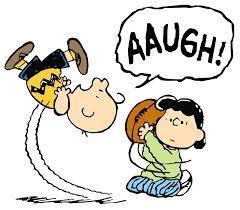 At Digital Book World's annual conference, Businessweek contributor Brad Stone described Amazon as "ruthless and self-absorbed."
At Digital Book World's annual conference, Businessweek contributor Brad Stone described Amazon as "ruthless and self-absorbed."After reading this announcement in Publishers Weekly, I am tempted to add some other adjectives as well - heartless comes to mind.
What Amazon has done to publishing houses, struggling academic presses, and moribund brick-and-mortar book stores, it is now doing to the very authors who helped make Amazon the monster it is today.
By cutting royalty rates for authors who self-publish their audiobooks on Amazon by up to half, Amazon hopes to "encourage authors to become more aggressive marketers." (Translation: "We will do less for you, and, in exchange, you will do more for us.") (There is a reason for anti-trust laws. It's a pity they aren't enforced.)
In sum, the benefits of self-publishing audiobooks through Amazon are waning rapidly. I expect the same will eventually hold true of all of its other publishing platforms as well.
It's only a matter of time.
_______________________________________________________
Audible Lowers Royalty on Self-Published Audiobooks
Publishers Weekly, February 28, 2014
Amazon-owned audiobook retailer Audible is lowering the royalty rates it pays authors who self-publish their audiobooks through the website.
As first reported by Gigaom, Amazon announced the news on a blog post on its ACX website. ACX, or Audiobook Common Exchange, is the company's platform through which authors can post their available audio rights and producers can then bid on the rights, to create the work. Creators then have the option to sell the audiobooks exclusively through Amazon, Audible and iTunes at a higher royalty rate, or through a wider range of retailers, at a lower rate. Up until now, Amazon was offering an escalating rate of 50%-90% on ACX titles sold exclusively; now it is dropping the rate to a non-escalating 40%. (ACX audbiobooks distributed non-exclusively are dropping to a non-escalating rate of 25%.)
The move, Amazon said in the post, which takes effect March 12, 2014, will, in part, encourage authors to become more aggressive marketers. With the drop in royalty rate, for authors selling their audiobooks exclusively, Amazon has bumped up its "bounty" program. The bounty is the amount awarded to the author (or royalty earner) whenever an audiobook is the first purchase of a new member of the program. Previously the bounty was $25, and now it is $50.
Audiobooks signed up before March 12, and those currently selling under the existing royalty structure, will continue to draw the original rates.
Published on March 03, 2014 15:25
March 1, 2014
Twitter: How to Build a Following - for Writers
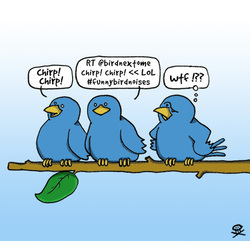 The first person to suggest that I use Twitter was my 82-year-old mother. "No, I certainly will not tweet," I told her.
The first person to suggest that I use Twitter was my 82-year-old mother. "No, I certainly will not tweet," I told her.As much as I hate to admit it, my mother was right. I now tweet with gusto, and not only is it fun, it's effective - perhaps more effective than emails, Facebook, or any of the forums I used to frequent.
The reason is obvious: It's brief. As our schedules get busier and busier, it's easier to deal with 140 characters than it is to read an email. (If an agent you are interested in approaching has a Twitter account, by all means, follow.)
It's also incredibly easy to get the word out on your promotions, blog posts, giveaways, and anything else writing-related via tweets.
As a case in point, visitors to this blog have increased dramatically since I started actively building a following. Now, a substantial number of visitors arrive via tweets.
So, read Joel Friedlander's article below. The man knows what he is talking about.
_____________________________________
How to Build an Awesome and Relevant Twitter Following in 6 Minutes a Day
By Joel Friedlander, The Book Designer
If you’re like lots of other authors, you might feel a bit conflicted about Twitter. On one hand, you know that Twitter has become something more than just another social media network. It has started to function as the information network of choice for millions of people around the world.
These days, you even see Twitter feeds on television, and journalists, politicians, and celebrities make use of Twitter’s ability to communicate quite a lot in just 140 characters.
You know it’s a great place to interact with readers and colleagues. And with more and more people joining Twitter every day, you also know it’s a great place to promote your book, your blog and your other activities.
Right now, as Twitter gets ready to “go public” we know that they report over 218 million active monthly users, and that Twitter grew almost 48% in the year between March 2012 and March 2013. This trend shows no signs of slowing down.
On the other hand, Twitter can seem both cryptic and confusing when you first get started.
For one thing, there are lots of people just like you who already seem to have hundreds, thousands or tens of thousands of followers. How will you ever catch up?
Read the rest of this informative article HERE.
Published on March 01, 2014 12:18



